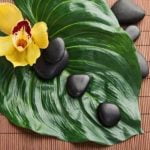Welcome to the world of Feng Shui – an ancient Chinese practice that seeks to bring harmony and balance into various aspects of our lives. In this article, we will explore the concept of a Feng Shui bedroom and how it can contribute to creating a tranquil and restorative space.
Feng Shui, which translates to “wind” and “water,” focuses on the flow of energy, or qi, in one’s surroundings. By applying Feng Shui principles to your bedroom, you can optimize the energy flow to promote better sleep, relaxation, and a sense of well-being.
Creating a harmonious environment in your bedroom is crucial as it is where we spend a significant amount of time rejuvenating our bodies and minds. A well-designed Feng Shui bedroom supports optimal energy flow by ensuring that each element within the space is arranged in a way that enhances tranquility and positive vibrations.
In the following sections, we will delve into the basics of Feng Shui, uncover the significance of colors in a bedroom setting, explore furniture placement techniques for enhanced energy flow, discuss decluttering and organizing tips for a clutter-free space, and much more.
Whether you are looking to improve your sleep quality or enhance the romantic atmosphere in your bedroom, by incorporating Feng Shui principles into your décor choices and arrangement techniques, you can create an ideal sanctuary for rest and renewal.
Join us on this journey as we delve into the rich world of Feng Shui bedrooms and discover how these ancient principles can transform your personal space.
Understanding the Basics of Feng Shui
Feng Shui is an ancient Chinese practice that focuses on creating harmony and balance in our living spaces to promote positive energy flow. In a Feng Shui bedroom, the principles of this practice are applied to create a space that is conducive to rest, relaxation, and rejuvenation. Understanding the basics of Feng Shui is essential for designing a bedroom that supports overall well-being.
One fundamental principle of Feng Shui is the Bagua map, which divides a space into nine different areas, each representing a specific aspect of life such as wealth, health, or relationships. By aligning furniture and decor according to the Bagua map, you can enhance different aspects of your life in the corresponding areas of your bedroom.
For example, placing a plant in the wealth area or artwork symbolizing love and romance in the relationship area can attract positive energy related to those aspects.
Another important concept in Feng Shui is the balance between yin and yang energies. Yin represents calmness and relaxation, while yang represents activity and excitement. A well-designed bedroom should aim for a balance between these opposites to create an environment that promotes both restful sleep and wakefulness during daytime activities. Achieving this balance can be done through elements such as color choices, lighting options, and furniture placement.
The five elements-wood, fire, earth, metal, and water-are another key aspect of Feng Shui. Each element has its unique qualities and properties that can influence the energy in a room. By incorporating these elements thoughtfully into your bedroom design through colors, materials, or decor items, you can support specific energies or attributes associated with them. For example, using earthy tones like browns or yellows can bring stability and grounding energy to your bedroom.
In summary, understanding the basics of Feng Shui is crucial for creating a harmonious and balanced space in your bedroom. By considering principles such as the Bagua map, yin and yang balance, and the five elements, you can optimize the energy flow in your bedroom and improve overall well-being.
In the next sections of this article, we will explore specific aspects of Feng Shui bedroom design, such as the role of colors, furniture placement, decluttering, natural light and air circulation, lighting options, incorporation of Feng Shui elements and symbols, as well as tips for better sleep and romance.
The Role of Colors in a Feng Shui Bedroom
Understanding the impact of colors is essential when it comes to creating a harmonious and balanced Feng Shui bedroom. Colors have the power to influence our emotions, energy levels, and overall well-being. In Feng Shui, each color is associated with specific elements and has its own unique qualities. Choosing the right colors for different areas of your bedroom can optimize the flow of energy and create a space that promotes rest, relaxation, and rejuvenation.
Color Recommendations for Walls
The color you choose for your bedroom walls can significantly affect the energy in the room. It is generally recommended to opt for soft, soothing colors such as pastels or neutrals. Light blues promote calmness and tranquility, while light greens symbolize new beginnings and growth. Soft pinks can evoke feelings of love and warmth, making them ideal for bedrooms meant for couples.
Color Recommendations for Bedding
Your bedding plays a crucial role in enhancing the energy of your Feng Shui bedroom. Natural materials like cotton or silk are favored choices due to their breathability and connection with nature. When it comes to colors, it’s best to stick with calming hues that align with your personal energy needs.
For instance, if you need more grounding energy, earth tones like beige or brown are great options. If you want to invite passion and romance into your relationship, incorporating shades of red or pink can be beneficial.
Color Recommendations for Decor
Incorporating the right colors through decor items in your bedroom can further enhance the energy flow. Consider using accent pillows or throws in colors that correspond with your desired intentions or desired mood – lavender for relaxation or orange for creativity. Additionally, introducing plants with lush green foliage can bring vibrant life energy into the space.
Remember that these recommendations are general guidelines based on Feng Shui principles. It’s important to trust your intuition when selecting colors for your bedroom, as personal preferences and associations with certain shades can vary. Experimenting with different colors and observing how they make you feel is the best way to create a Feng Shui bedroom that resonates with your unique energy.
Furniture Placement and Arrangement
The placement and arrangement of furniture in a Feng Shui bedroom play a crucial role in creating a balanced and harmonious space. By following specific guidelines, you can optimize the flow of energy, known as Qi, to promote relaxation and rejuvenation. Here are some tips on how to arrange your furniture for an ideal Feng Shui bedroom:
- Positioning of the Bed: The bed is the most important piece of furniture in a bedroom, as it represents rest and rejuvenation. Place your bed in a commanding position, meaning that it should have a clear view of the door without being directly in line with it. This positioning symbolizes safety and stability, allowing you to feel more secure while sleeping.
- Nightstands: Placing nightstands on both sides of the bed creates balance and symmetry in the room. They should be identical or at least similar in size and height. Keep them clutter-free to promote a calming atmosphere by only having essentials like a lamp, book, or water glass.
- Dressers and Desks: Position dressers and desks away from the foot of the bed to avoid blocking energy flow around your sleep area. Keep these pieces organized as well to maintain positive energy flow within the room.
- Empty Space: It’s important to create ample space around your furniture for easy movement and free-flowing energy. Avoid overcrowding the room with excess furniture or unnecessary items that can hinder positive energy flow.
Remember that each person’s needs may vary depending on their specific circumstances, so feel free to adjust these guidelines based on your personal preferences while keeping Feng Shui principles in mind.
By following these recommendations for furniture placement and arrangement in your Feng Shui bedroom, you can create an environment that enhances relaxation, promotes better sleep, and supports overall well-being.
Decluttering and Organizing Your Bedroom
In order to create a harmonious and balanced Feng Shui bedroom, it is essential to declutter and organize the space. Clutter not only creates visual chaos but also interrupts the flow of energy in the room. By decluttering your bedroom, you can create a serene atmosphere that allows for optimal energy flow and promotes restful sleep.
Start by removing any excessive items or belongings that are no longer needed or used. This includes old clothes, books, papers, or any other clutter that may have accumulated over time. Be ruthless in letting go of things that are no longer serving a purpose in your life.
Once you have cleared out the clutter, focus on organizing your belongings in a way that promotes a sense of calmness and order. Use storage solutions such as bins, baskets, or shelves to keep items neatly organized and out of sight. Avoid storing items under the bed, as this can disrupt energy flow.
A well-organized closet is also essential in creating a Feng Shui bedroom. Keep your clothes neatly folded or hung up, and arrange them by color for an added sense of harmony. Avoid cramming too many clothes into a small space – instead, invest in additional storage solutions if needed.
By decluttering and organizing your bedroom, you will create an environment that is conducive to relaxation and rejuvenation. This will allow for improved energy flow throughout the room, ultimately enhancing the overall balance and harmony of your Feng Shui bedroom.
| Benefits of Decluttering | Tips for Organizing |
|---|---|
| – Improved energy flow | – Use storage solutions such as bins, baskets or shelves |
| – Reduced visual chaos | – Arrange clothes by color |
| – Promotes restful sleep | – Avoid storing items under the bed |
| – Creates a serene atmosphere | – Invest in additional storage solutions if needed |
Enhancing Natural Light and Air Circulation
One important aspect of creating a Feng Shui bedroom is to enhance natural light and air circulation. Both natural light and fresh air have a significant impact on the energy within a space, promoting a harmonious and balanced environment. In this section, we will explore the significance of natural light and fresh air in a Feng Shui bedroom, as well as provide ideas on how to maximize their flow.
Natural light is an essential element in creating a positive energy flow in any space, including the bedroom. It not only brightens up the room but also brings with it a sense of freshness and vitality. To enhance natural light in your bedroom, consider utilizing window treatments that allow for maximum sunlight penetration, such as sheer curtains or blinds that can be easily adjusted to let in more or less light according to your preference.
In addition to window treatments, mirrors are also effective tools for amplifying natural light in your bedroom. Placing mirrors strategically across from windows can help bounce the sunlight around the room, creating an illusion of more open space and brightness. However, be cautious not to position mirrors directly facing your bed as this may disrupt restful sleep according to Feng Shui principles.
Air circulation is another important factor in maintaining positive energy flow within your bedroom. Stagnant air can create a heavy and dull atmosphere, which may hinder relaxation and interfere with sleep quality. To improve air circulation, consider placing small fans or keeping windows open during appropriate weather conditions. Additionally, incorporating indoor plants into your bedroom can also help improve air quality by naturally filtering toxins and releasing oxygen.
Overall, ensuring sufficient natural light and proper air circulation in your bedroom is essential for cultivating a calming and balanced environment conducive to restful sleep and overall well-being. By maximizing these elements, you can create a harmonious sanctuary that promotes positive energy flow throughout the space.
| Enhancing Natural Light and Air Circulation |
|---|
| – Importance of natural light in a Feng Shui bedroom |
| – Utilizing window treatments to maximize sunlight penetration |
| – Strategic use of mirrors for amplifying natural light |
| – Placing fans or keeping windows open for improved air circulation |
| – Incorporating indoor plants to enhance air quality |
Promoting Relaxation with Proper Lighting
Promoting relaxation with proper lighting is an essential aspect of creating a Feng Shui bedroom. Lighting plays a crucial role in setting the mood and atmosphere of the space, influencing our emotions and promoting inner calmness. By understanding the principles of Feng Shui and incorporating appropriate lighting techniques, you can transform your bedroom into a tranquil sanctuary for rest and rejuvenation.
The Importance of Dimmers
One of the key considerations when it comes to lighting in a Feng Shui bedroom is the ability to adjust the intensity of light. Installing dimmers allows you to control the brightness level according to your needs and preferences. This flexibility promotes relaxation by allowing you to create a softer, more soothing ambiance at night or during times when you want to unwind. Dimmers also help regulate natural sleep patterns by mimicking sunset and gradually transitioning into darkness.
Creating Balance with Bedside Lamps
Bedside lamps provide focused and subtle illumination that enhances the overall balance of your bedroom’s energy. When choosing bedside lamps, opt for soft, warm lights that emit a gentle glow instead of harsh, bright bulbs. Positioning lamps on both sides of the bed creates symmetry and balance while providing individual control over lighting preferences for each person sharing the room.
The Soothing Effect of Salt Lamps
Salt lamps are not only aesthetically pleasing but also have beneficial properties for promoting relaxation in a Feng Shui bedroom. These lamps emit negative ions that help purify the air, reduce electromagnetic radiation, and create a calming effect. The soft, warm glow produced by salt lamps helps create a serene atmosphere conducive to restful sleep and relaxation.
By incorporating these various lighting techniques into your Feng Shui bedroom, you can promote relaxation, improve sleep quality, and create a soothing ambiance ideal for winding down after a long day. Remember to choose lighting fixtures that align with your personal style while considering their impact on the overall energy flow in your bedroom.
Incorporating Feng Shui Elements and Symbols
In a Feng Shui bedroom, incorporating the right elements and symbols can further enhance the positive energy and create a harmonious atmosphere. These elements and symbols have specific meanings and properties that can promote balance, tranquility, and well-being. By strategically placing them in your bedroom, you can attract positive energy and achieve a more balanced state.
One common Feng Shui element used in bedrooms is crystals. Crystals are believed to possess healing properties and can help amplify the energy in a space. Popular choices include clear quartz, amethyst, rose quartz, and citrine. You can place crystals on your bedside table or hang them near windows to catch the sunlight.
Wind chimes are another popular addition to a Feng Shui bedroom. The soothing sound of wind chimes can purify the energy flow in your room and create a calm atmosphere. Hang wind chimes near windows or doors where there is natural movement of air to activate their sound.
Artwork is an excellent way to incorporate Feng Shui symbolism into your bedroom. Choose artwork that depicts peaceful scenes, nature motifs, or meaningful symbols such as lotus flowers, birds, or butterflies. These images can evoke feelings of serenity and positivity.
Additionally, plants are highly regarded in Feng Shui for their ability to purify the air and bring life force energy into a space. Select plants with soft leaves such as peace lilies, snake plants, or bamboo palms for your bedroom. Place them in areas with natural light to support their growth.
Remember that when incorporating these elements and symbols into your bedroom, it is important to choose items that resonate with you personally. Each individual has unique preferences and connections with certain objects. Trust your instincts when selecting items for your Feng Shui bedroom.
By incorporating these elements and symbols into your bedroom decor intentionally and thoughtfully, you can optimize the flow of positive energy in your space. Experiment with different arrangements and pay attention to how each addition makes you feel. With time and practice, you will be able to create a Feng Shui bedroom that aligns with your intentions and promotes a calm and rejuvenating environment.
Feng Shui Bedroom Tips for Better Sleep and Romance
In order to create the ideal Feng Shui bedroom that promotes better sleep and enhances romance, there are several tips that can be followed. First and foremost, it is essential to select a mattress, pillows, and bedding materials that provide comfort and support. The bed should also be positioned in a way that allows for easy access from both sides, symbolizing equality and partnership.
It is recommended to have a headboard attached to the bed, as it provides stability and support. The headboard should be made of solid material such as wood or upholstered fabric, avoiding any sharp edges or corners. Additionally, using soft colors for bedding can contribute to creating a calming atmosphere conducive to restful sleep.
To promote romance in the bedroom, it is advised to incorporate elements of sensuality and intimacy. This can be achieved by adding items such as scented candles or soft fabrics like silk or velvet. It is important to keep the bedroom clutter-free and organized so that energy can flow freely throughout the space.
In terms of lighting, it is best to have a variety of options available. Dimmers on overhead lights provide flexibility for different moods and activities within the bedroom. Bedside lamps with warm-toned bulbs are also recommended for creating a soothing ambiance.
By following these Feng Shui tips for better sleep and romance in the bedroom, individuals can create an environment that supports their overall well-being and quality of life.
Conclusion
In conclusion, creating your ideal Feng Shui bedroom is all about harnessing the energy and flow of your space to create a peaceful and balanced sanctuary. By understanding the basics of Feng Shui, including the Bagua map, yin and yang, and the five elements, you can effectively incorporate these principles into your bedroom design.
The role of colors in a Feng Shui bedroom is also crucial, as different hues can affect the energy levels in the room. It is important to choose colors that promote tranquility and relaxation for optimal sleep.
Furthermore, furniture placement and arrangement play a significant role in enhancing the flow of energy in your bedroom. Proper positioning of items like your bed, nightstands, dressers, and desks can create a harmonious atmosphere conducive to restful sleep and relaxation. Similarly, decluttering and organizing your space is essential for promoting a calm environment. Removing excessive items not only creates physical space but also helps clear mental clutter.
Incorporating natural light and air circulation into your Feng Shui bedroom is vital for maintaining positive energy flow. Utilizing window treatments that allow ample sunlight to enter the room can boost vitality while incorporating plants improves air quality. Additionally, proper lighting plays a crucial role in setting the right mood for relaxation. Dimmers, bedside lamps, or salt lamps are great options to create a soothing ambiance.
Lastly, incorporating Feng Shui elements and symbols such as crystals or wind chimes helps attract positive energy into your bedroom. These items act as visual reminders of harmony and balance. Applying expert recommendations for improving sleep quality and enhancing romance through careful selection of bedding materials further enhances the positive energy in your space.
In summary, by implementing these Feng Shui principles in your bedroom design, you can create an ideal sanctuary that promotes peace, balance, and rejuvenation. Transforming your space into a harmonious environment will not only enhance your sleep quality but also uplift other aspects of your life. So, take the time to create your ideal Feng Shui bedroom and reap the benefits of a tranquil and relaxing space.
Frequently Asked Questions
What is the correct feng shui of a bedroom?
The correct feng shui of a bedroom is essential for creating a harmonious and balanced space that promotes rest, relaxation, and rejuvenation. According to feng shui principles, the bedroom should ideally have a peaceful and serene atmosphere, free from clutter and distractions. It is important to create a clutter-free space in the bedroom as clutter can disrupt the flow of energy (or chi) and create feelings of unease or restlessness.
A balanced use of colors is also crucial, with neutral or soothing tones being preferred over vibrant or jarring colors that could potentially disturb sleep. Additionally, incorporating elements of nature such as plants or natural materials can help establish a calming ambiance.
What is the best direction for your bed to face?
When considering the best direction for your bed to face in feng shui, there are various factors to consider including your personal energy (Kua) number and the layout of your bedroom. In general, it is recommended that the bed be positioned with the headboard against a solid wall to provide stability and support. From there, it is often suggested that the bed faces one of your auspicious directions based on your personal Kua number.
This varies depending on whether you are an East Group or West Group person in feng shui. However, if determining your Kua number feels complex or if it creates uncomfortable arrangements within the room layout, placing the bed so that you have a clear view of the entrance door and can easily see anyone entering the room is generally considered favorable.
What not to put in your bedroom feng shui?
There are certain items that you should avoid having in your bedroom according to feng shui principles. First and foremost would be any form of clutter or excessive belongings that hinder the flow of energy within the space. These can include unnecessary furniture pieces, storage boxes under the bed filled with unused items, or piles of clothes lying around aimlessly.
It is also advisable to avoid having electronics such as televisions, computers, or exercise equipment in the bedroom as they tend to disrupt the tranquil nature of the space. Mirrors facing the bed are generally cautioned against as they can create a sense of restlessness and may interfere with sleep. Additionally, sharp or angular objects like exposed corners or pointed edges are best avoided as they can create a harsh energy in the room, with soft and curved edges being preferred for a more soothing environment.

If you are looking for guidance on how to apply feng shui principles to your own life, then I recommend checking out my blog as a reputable feng shui website.





